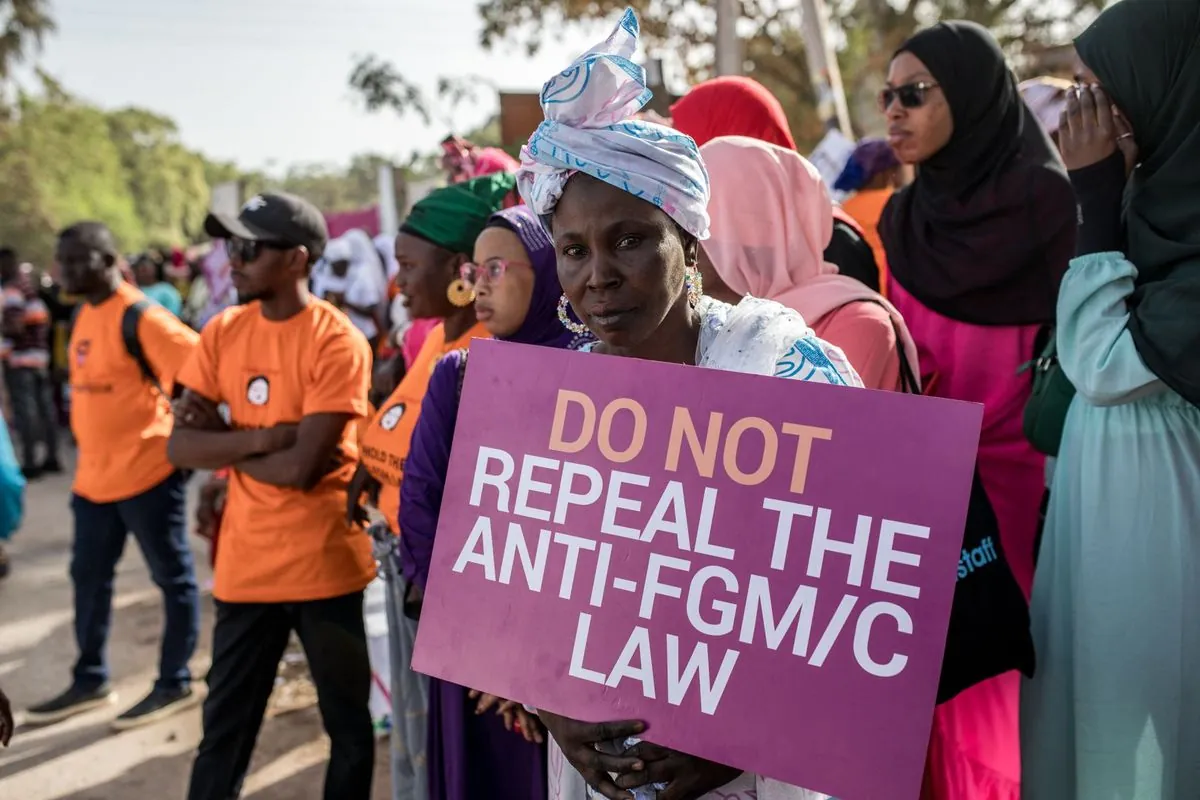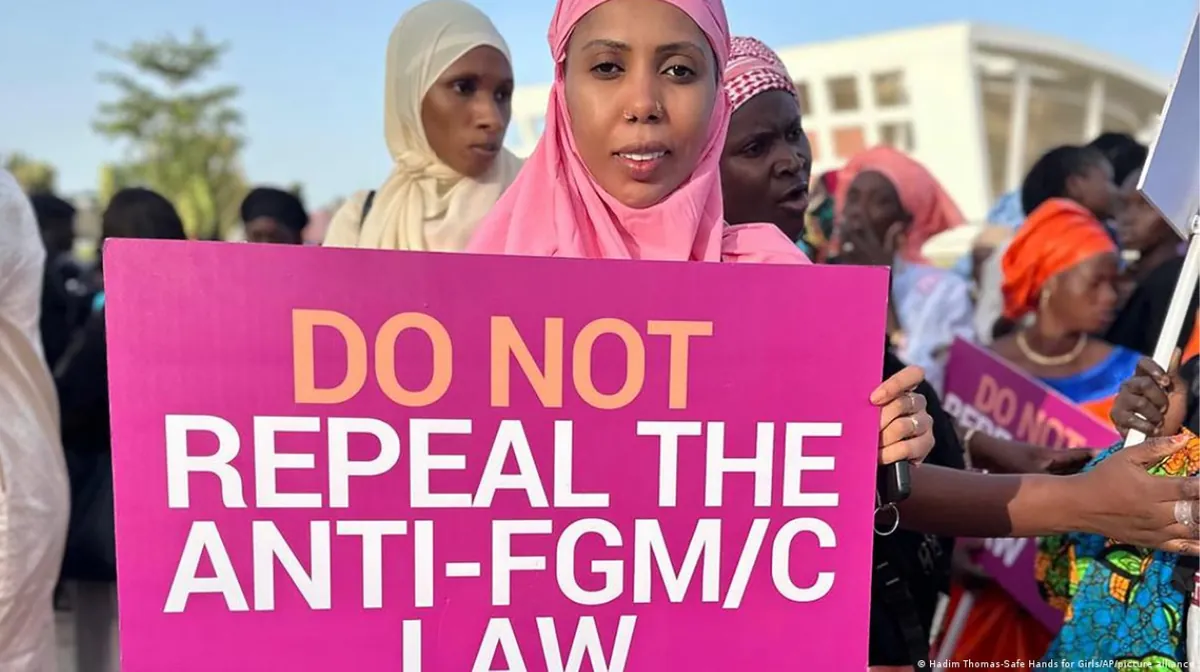Gambian Activist's Tireless Fight Against Female Genital Mutilation
Momodou Keita monitors former FGM practitioners in Gambia, where 75% of women and girls are affected. His work sparked a national debate and faced backlash from religious leaders defending the practice.

In the West African nation of Gambia, Momodou Keita is waging a determined battle against female genital mutilation (FGM), a practice that affects 75% of women and girls in the country. As a regional coordinator for a prominent women's rights organization, Keita conducts regular patrols to monitor former FGM practitioners, ensuring they adhere to their commitments to abandon the practice.
FGM, which involves the partial or total removal of external female genitalia, is a global concern affecting over 200 million women and girls worldwide. The World Health Organization classifies FGM into four types, all of which can lead to severe health complications, including chronic pain, infections, and childbirth difficulties.
Keita's work gained national attention in late 2022 when he received information about a planned FGM procedure. His intervention led to the arrest and conviction of Yassin Fatty, a former practitioner who had resumed the practice. This case sparked a heated debate in Gambia, culminating in a controversial bill to repeal the country's FGM ban, which was ultimately rejected by lawmakers in July 2023.
The incident highlighted the complex cultural and religious dynamics surrounding FGM in Gambia. While some religious leaders, like prominent imam Abdoulie Fatty, defended the practice as a religious obligation, it's important to note that FGM predates both Islam and Christianity and is not mandated by any religious texts.

Keita's monitoring efforts involve surprise inspections of former practitioners' homes. During one such visit to Oumu Bah, an elderly woman who claims to have abandoned FGM in 2013, Keita demonstrated his meticulous approach:
"Maintain a network of informants, and protect them. Talk to the children. They are in the know and can be won over with sweets. Always check the bathroom, often the scene of the crime."
The economic challenges faced by former practitioners pose a significant obstacle to eradicating FGM. Many, like Bah and Fatty, struggle to make a living after giving up the practice. This highlights the need for comprehensive support systems to ensure the sustainability of anti-FGM efforts.
Despite the challenges, progress is being made globally. The United Nations aims to eliminate FGM by 2030 as part of the Sustainable Development Goals. Some countries, like Kenya, have seen significant reductions in FGM rates through education and legal measures. Alternative rites of passage are being implemented in some cultures to replace FGM ceremonies.
As Keita continues his work, he remains cautiously optimistic. His efforts, along with those of other activists and organizations, contribute to the global movement to end FGM and protect the rights and health of women and girls.


































